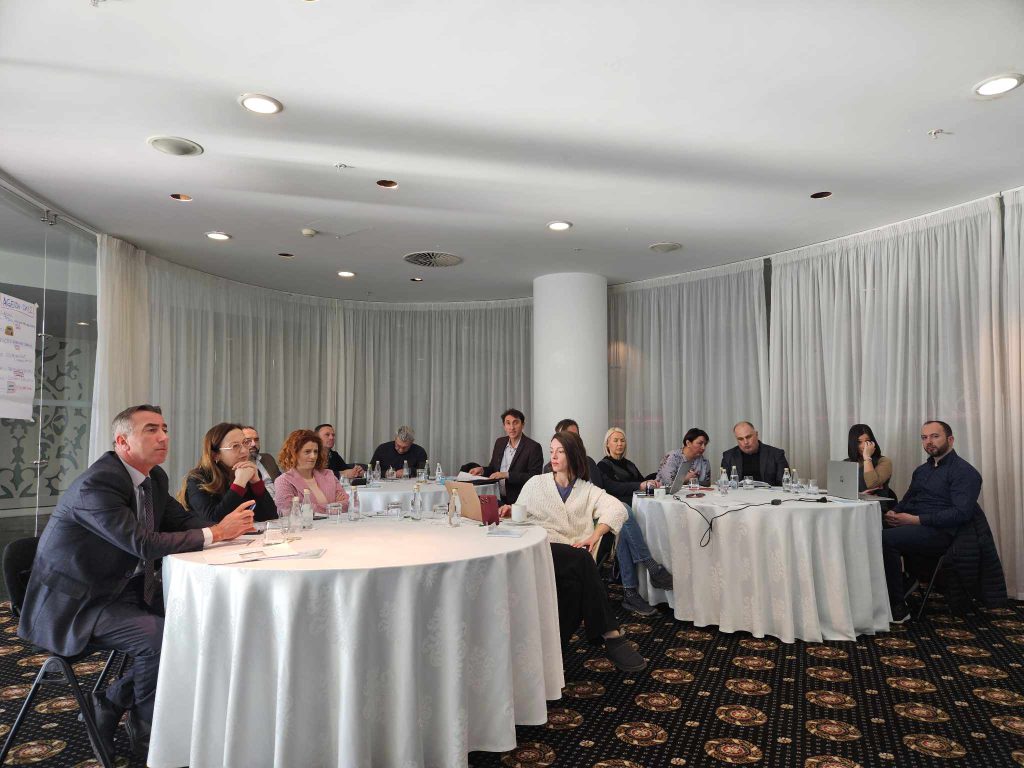
The thematic committees are part of the key working bodies of the Local Government Associations (LGAs), bringing the expertise from the field and driving LGA’s activities in the relevant thematic area. NALAS and the Regional Capacity Development Network for Water and Sanitation Services (RCDN) are committed to strengthen the capacities of the LGAs to establish and manage highly effective water and sanitation services (WSS) sector committees that play a crucial role in shaping sector-related policies. To achieve this, in the upcoming two years, within RCDN+, NALAS will systematically support LGAs’ WSS committees. As a starting point, LGAs’ Sectoral Committees Workshop was organised from 23 to 25 January 2024, in Budva, Montenegro.
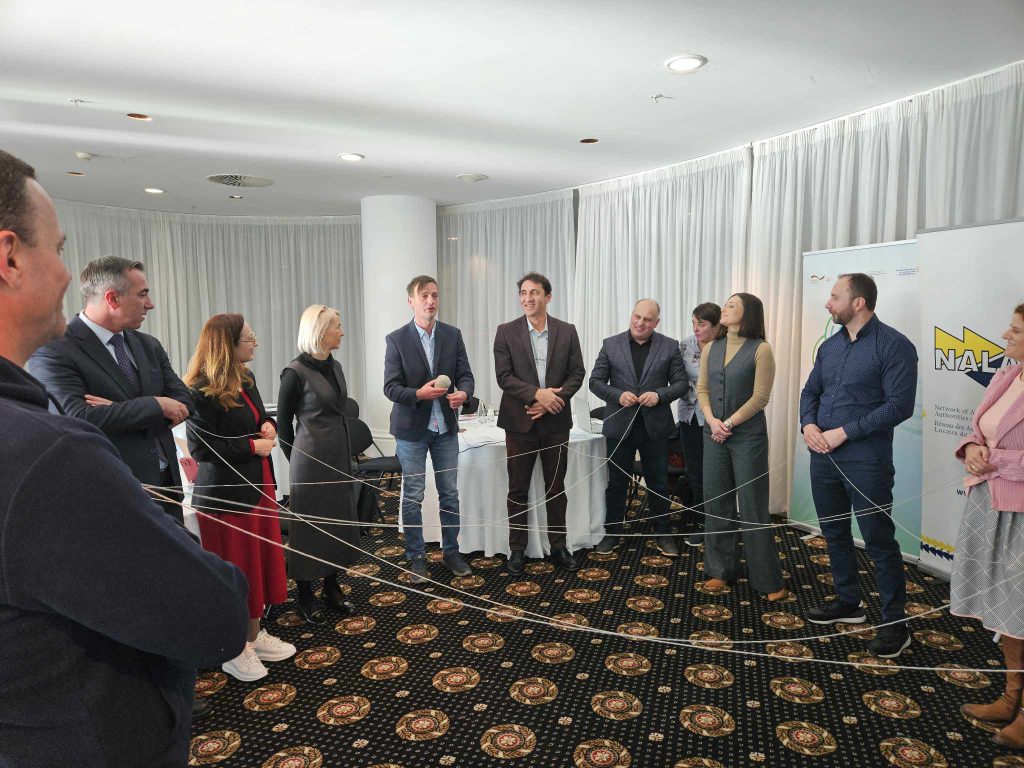
The LGAs from the Western Balkans, partners of RCDN+ presented their experiences with the WSS committees, including the procedures for establishment of the committees, their composition, roles and main achievements.
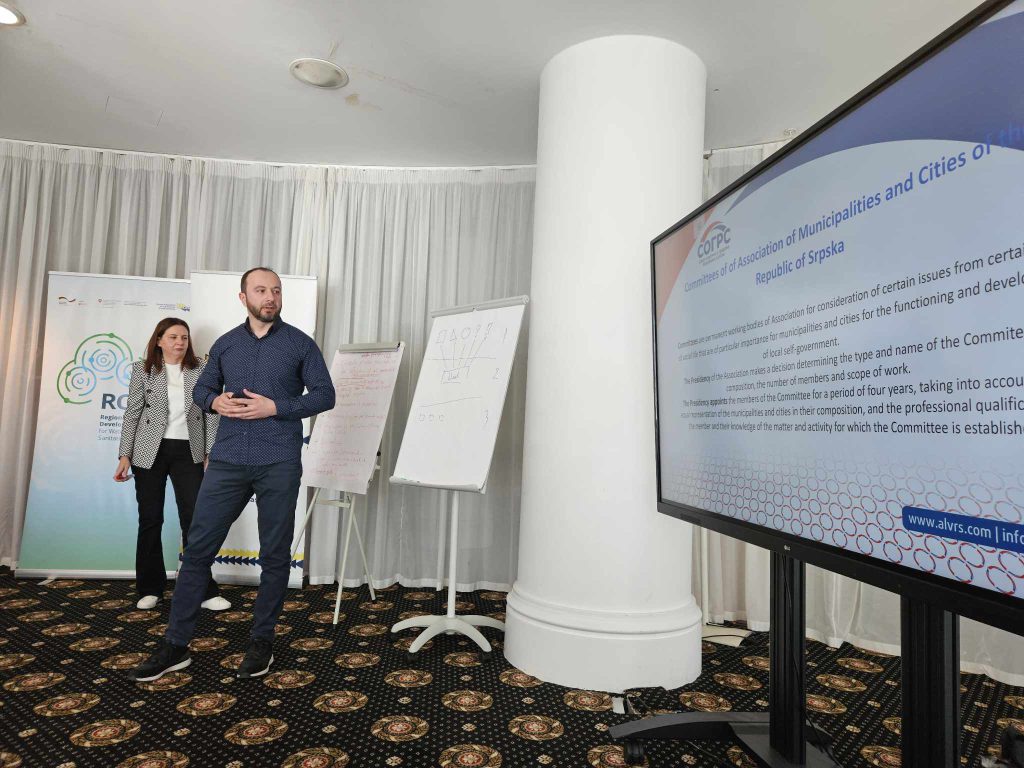
As the possibility of learning from more experienced peers is one of the key advantages of NALAS, this time the Slovenian Association of Municipalities (SOS) and the Association of Kosovo Municipalities (AKM) were invited to present their best practices, experiences, and challenges in the functioning of WSS Committees.
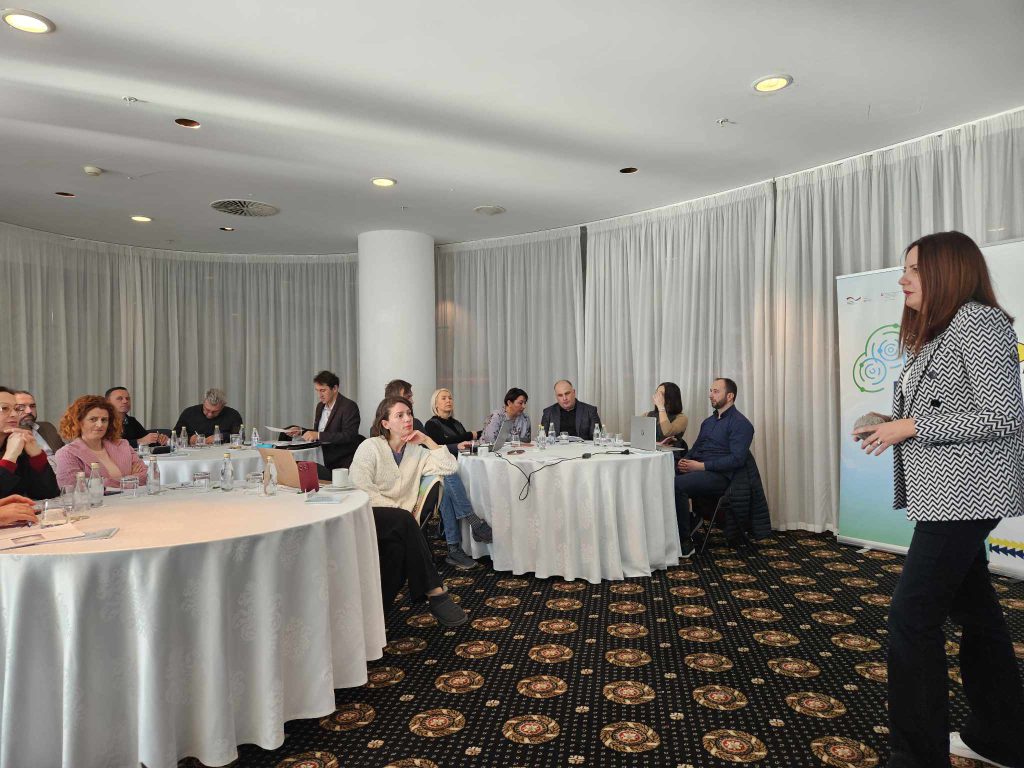
Ms. Barbara Horvat elaborated the rich experience of SOS’ Committee for Public Utility Services, that has been very successful in influencing important improvements in the WSS sector in Slovenia. This Committee has attracted a number of mayors to get active in its work. “The influence of the Committee on the functioning of SOS is important, as the committee prepares expert opinions and proposals for the Board and Bureau. The Committee thus helps in formulating SOS’s positions and proposals regarding the proposed laws and by-laws. The members of the Committee can also independently initiate law improvement proposals, point out problems in the implementation of legislation and express the need for training”, said Ms. Horvat.
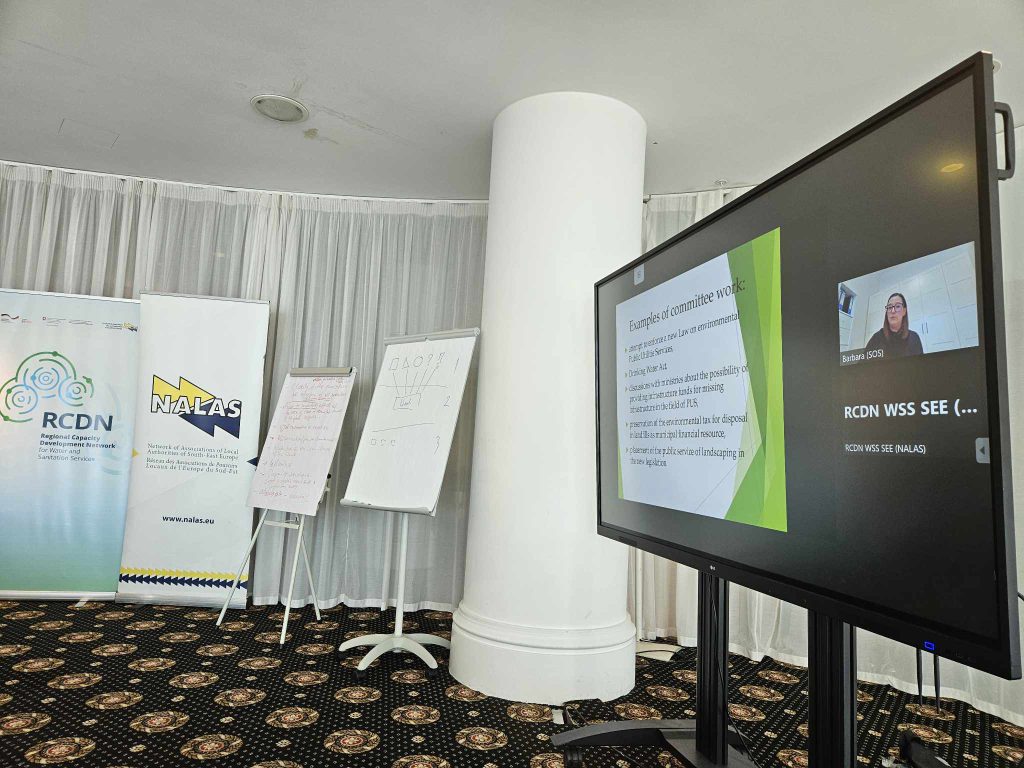
Mr. Sazan Ibrahimi, the Executive Director of AKM, highlighted the role of AKM’s Collegia in Association’s advocacy and lobbying and capacity development work, as well as in strengthening inter-municipal cooperation. “AKM Collegia are the brain of AKM. They include all municipalities and have a key role in determining the burning issues in the sector and providing legislative and other solutions, always protecting the interest of municipalities”, emphasized Mr. Ibrahimi. “The Collegia develop the position of municipalities, represent AKM in inter and intra-ministerial working groups and conduct different analysis and researches”, said Mr. Ibrahimi.
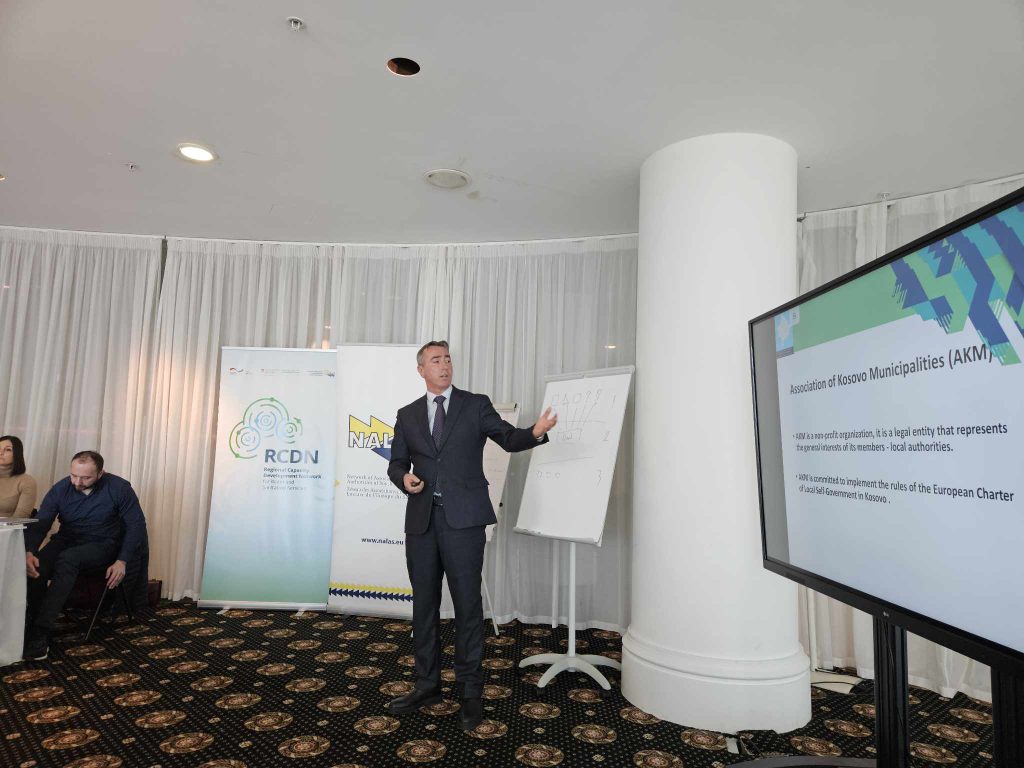
In working groups, participants brainstormed on the main principles and core methods for advancing the role of WSS Committees and outlined a model of “an ideal” WSS committee, that will be soon transformed into Guidelines for the establishment and functioning of an “ideal” LGA’s WSS committee.
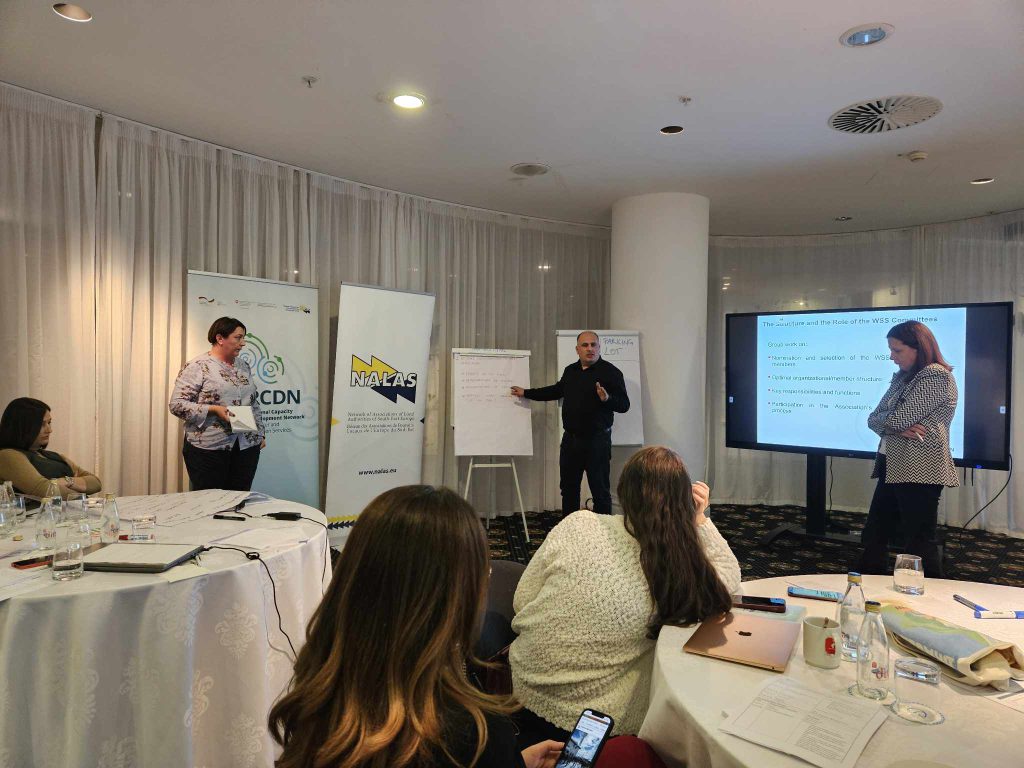
***
About RCDN+
The overall impact of RCDN+ is increased effectiveness and efficiency of APUCs and LGAs in Western Balkans that contribute to better service provision towards and by their members, the public water utilities and municipalities, ultimately allowing to reach a large population with equitable, safe drinking water and sanitation services in line with the EU Acquis Communautaire (chapter 27).
Four outcomes will contribute to the achievement of the overall impact: The APUCs and LGAs are capable to perform the organisational functions in line with their mandate (outcome 1 – association development). They are capable to respond to the CD requests of their members (outcome 2 – CD products and CD delivery) and to advocate for the interest of their members and being recognised by competent national agencies (outcome 3 – advocacy and policy dialogue). Regional services add value to the APUCs’ and LGAs’ member services in the 6 Western Balkans countries (outcome 4 – regional services and digital learning).